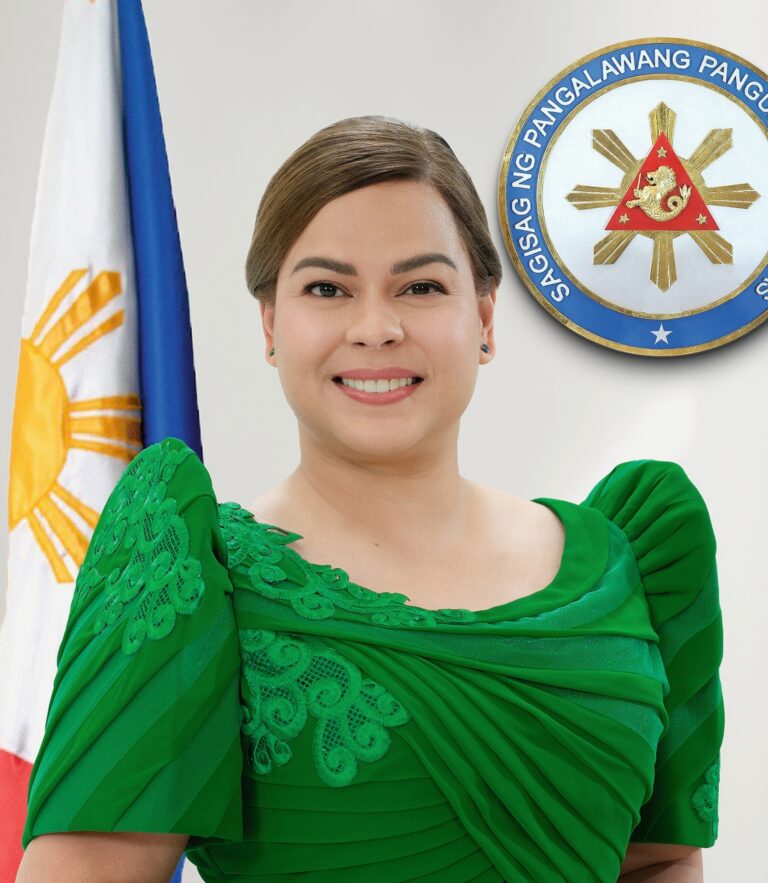Former President Rodrigo Duterte, whose statutory single six-year presidential term ended in 2022, is likely to be succeeded in dynastic succession in 2028 by his daughter Sara Zimmerman Duterte. Already vice-president to Bongbong Marcos, Sara Duterte, having joined forces with him last time round to win a joint ticket landslide, stands in line to lead her country at the next presidential election. A poll in June this year for the 2028 presidential election put her at 28 percent, way ahead of her nearest rival at 11 percent.
Apart from name recognition she already has an impressive list of political accomplishments. At the age of 29 she served as vice-mayor of Davao City, the capital of the large southern island of Mindanao and the Philippines third city. Seven years later she was elected mayor. She also served as de facto first lady to her father.
Subsequently Sara Duterte formed her own political party, Hugpong ng Pagbabago (Alliance for Change). She proved her political guile when, after a personal spat with House Speaker, Pantaleon Alvarez, she manoeuvred his removal. She not only has sharp political elbows, but she can throw a solid punch too. In 2011, Sara, a crop haired chunky woman, beat up a sheriff on live TV for implementing a court order to demolish a Davao City shanty. Like her father she is feisty and opinionated – though unlike him she is not potty mouthed and does not tote guns in public.
Despite her political advancement it should not be assumed that she is her father’s puppet. While she is his favourite, she has been quite open about her distaste for his rakish lifestyle and womanizing. His often uncouth and inappropriate off-the-cuff remarks must have been a nightmare to live with. After Sara admitted to having been raped, her father called her a ‘drama queen’ and told reporters that ‘she can’t be raped - she carries a gun.’
Sara clearly sympathised with her mother, Elizabeth Zimmerman, an air hostess of supposedly German Jewish descent, who left him in 1998 because of his flagrant adultery. She won an annulment with the support of a clinical psychologist who concluded that Duterte ‘is suffering from a narcissistic personality disorder, with aggressive features.’ Perhaps because of her father’s fecklessness, Sara Duterte appears to have a chosen a quiet family life with her long-time husband and three children.
Sarah Duterte political focus is very different from her father’s. While she supported her father’s ruthless crackdown of the drugs and crime epidemic that had swept the Philippines – becoming known as ‘Duterte Harry’ in reference to the magnum toting Clint Eastwood character – by contrast the emphasis of her policies in on female emancipation in a conservative Catholic country. In a the west she might be described as ‘woke’ and hostile to the male ‘patriarchy’ but in a country such as the Philippines which is one of the last bastions of social conservatism, her views are simply a realistic adjustment to the modern world.
As vice-president, Duterte has taken on the role of the Minister of Education. Here she has positioned herself as a progressive feminist, albeit one who advocates the convservative virtues of stable marriage. At a recent art event she exhorted women to ‘let this occasion strengthen our solidarity as women who empower fellow women’ to engage in nation-building ‘especially in our environmental protection and conservation efforts’ as well as ‘eliminating violence against women and girls.’ This year her theme for Women’s Month at the Department of Education was ‘gender equality and an inclusive society.’
Nevertheless, Duterte continues to take a conservative albeit sotto voce line on divorce and abortion. After Malta allowed divorce in 2011, the Philippines remains the only country in the world where divorce is not allowed. People generally get around this by annulment where possible (e.g former President Duterte from Sara’s mother) or by legal separation. A bill on divorce rights is currently working its way through the legislature; it remains unclear whether Sara Duterte will support it. She sided with her father against divorce legislation in 2018.
Not surprisingly abortion laws remain the world’s most restrictive too. But pressure is building. Recently the Philippine Commission on Human Rights has called for the decriminalisation of abortion. Again, Sara Duterte seems to be hedging her views on this subject.
As with her domestic policies, Duterte’s foreign policy inclinations are calculated. While her father guided the Philippines toward a pro-China stance, her foreign policy attitudes are more nuanced. ‘We should be a bystander in the China versus U.S. issue,’ she declared recently. ‘We should collect friends outside of the two, so that if one turns their back on us, we still have nine.’
Her answer reflects the fact that the Philippines, with a population of 115m people and a fast-growing economy – plus 7.65 real GDP growth in 2022 - is among a pack of southeast Asian countries such as Indonesia, Thailand and Vietnam which carry increasing heft in the region. Asia is not just about China. And increasingly powerful Asia leaders such as Sara Duterte are figures that will need to be reckoned with and courted by the world over the next decade.
